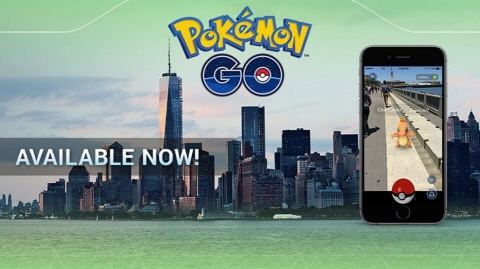
Pokemon Go? Get Outta Here!
Viral video games are usually maligned for gluing users to their couches for hours on end. But Pokemon Go, the sensational augmented reality app that overlays the real world with a digital game, has sent young people flooding into the streets and parks to catch Pokemon and explore the world around them. Does the Pokemon Go phenomenon show that technology can bring people into the real world, or is it just tying them in a new way to the digital realm?
* viral = 바이러스성의, 바이러스에 의한/ go viral = 입소문이 나다/ malign = (공개적으로) 비방[중상]하다/ glue A to/onto B = 붙이다/ on end = 쉬지 않고, 끝없이, 계속하여/ augmented = 증가된/ overlay = (무엇의 표면에 완전히) 덮어씌우다[입히다]; (어떤 감정・기운을) 더하다[어리게 하다]/ flood into ~ = ~로 몰려들다, ~로 쇄도하다/ bring ~ into ~ = ~로 이동[운반]시키다/ tie ~ to ~ = ~를 ~에 묶어 두다/ realm = (활동・관심・지식 등의) 영역[범위]
 Pokemon 현상은 기술이 사람들을 진짜 세계로 이동시킬 수 있음을 보여주나요 아니면 단지 디지털 영역에
Pokemon 현상은 기술이 사람들을 진짜 세계로 이동시킬 수 있음을 보여주나요 아니면 단지 디지털 영역에
새로운 방법으로 사람들을 묶어 두는 것인가요?
1. Resisting the Call of the Virtual
Immersion in technology, without a force to balance, can drain our ability to pay attention, to think clearly, to be productive and creative.
2. Give Kids’ Brains a Break From Screen Time
Imaginative play is critical to brain development and staring at a phone, waiting for Bulbasaur to appear is far from a healthy substitute.
3. Young People Want to Socialize With Each Other
Let's create more opportunities for technology to help young people be meaningfully connected in an augmented way.
4. There Are Dangers to Remaking the Real as a Virtual Place
Now, thanks to augmented reality, from the youngest age, a walk in our neighborhood doesn’t have to put us in touch with the neighborhood at all.
Sample Essay
There Are Dangers to Remaking the Real as a Virtual Place
What is screen time? Once we were sure: It was when we watched television, sat at computers, or took out our phones. It was diverting and seductive. But since the consistency and consequences of the physical world are so central to our relationships, experts — psychologists, educators, pediatricians — suggested that there was such a thing as too much screen time, particularly for children.
Now, in a few short days, the augmented reality of Pokémon Go has made apparent the naiveté of this approach. Yes, we are tempted to flee from the real to screen worlds. But we are also tempted to remake the real by looking at it through our screens. Now, all time becomes screen time. And Pokémon Go undermines simple critiques of spending time at a screen. In this game, players collaborate as they send their virtual creatures into battle; far from being sedentary, children trek over long distances. Many calories are burned.
But the fundamental reason we want children to take time away from screens does not have to do with keeping them on the move or playing in groups. We hope that by engaging children with the real they will be brought into a dialogue with what only the real offers: the details of life as it is lived and the people we live it with. The real teaches you to pay attention. It demands that you slow down to its pace. When we talk to other people about real problems, we learn to put ourselves in their place.
Now, from the youngest age, we may understand that a walk in our neighborhood doesn’t have to put us in touch with the neighborhood at all. From the youngest age, we may understand that at the end of the day, in our conversations about who we met and what we did, we may be talking about things that don’t exist.
Reality is fragile and complex. It demands a lot and we are fatigued. Addressing real problems begins by seeing them clearly. If we are not vigilant, seeing the world through a lens — albeit not darkly — can be a first step toward accepting a dreamscape as sufficient unto the day.





![]() Pokemon 현상은 기술이 사람들을 진짜 세계로 이동시킬 수 있음을 보여주나요 아니면 단지 디지털 영역에
Pokemon 현상은 기술이 사람들을 진짜 세계로 이동시킬 수 있음을 보여주나요 아니면 단지 디지털 영역에 






